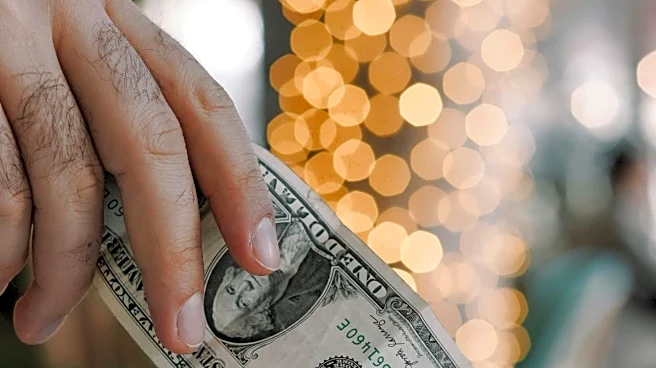What's Happening?
Bartenders across the U.S. are experiencing a shift in tipping practices, with some noting a decline in tips from younger patrons. Experts suggest a standard tip of 20% for bartenders, though this can
vary based on service quality and drink complexity. Factors such as the time of day and customer-bartender relationships also influence tipping amounts. The discussion highlights a generational divide, with younger drinkers reportedly tipping less.
Why It's Important?
Tipping practices directly affect the income of service industry workers, including bartenders. Changes in tipping behavior can impact their financial stability, especially as living costs rise. Understanding tipping etiquette is crucial for maintaining positive customer-service provider relationships and ensuring fair compensation for service workers.
Beyond the Headlines
The evolving tipping culture reflects broader societal changes, including shifts in consumer behavior and economic pressures. It raises questions about the sustainability of tipping as a primary income source for service workers and the need for potential policy changes in wage structures.








